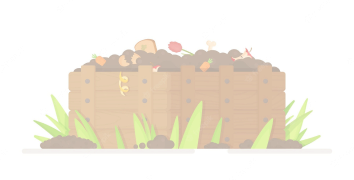
Can I put beer in my compost bin?
Umm...😕
It's complicated, whether you can put beer into your composting bin, so read on!
Key info
No category📂
1-2 weeks⏳
20:1⚖️
Get the right balance of brown and green composting materials in your bin with our expert guide.
Transforming Spent Beer into Garden Gold: A Composter's Guide to Beer-Enriched Soil
Enhancing Your Compost Pile with Spent Beer
As we delve into the eco-friendly practice of repurposing spent beer, we're not merely disposing of an unwanted beverage; we're enriching our compost pile with a nitrogen-rich catalyst. The addition of beer to compost is more than a mere disposal method—it’s a step towards a greener world.
The Science of Beer in Composting
Understanding the value of spent beer in the composting realm hinges on its yeast content—this natural source of nitrogen plays a pivotal role in decomposing organic matter. When spent beer amalgamates with the carbon materials already present in your compost bin, it catalyzes the breaking down of brown waste and food scraps alike, thus enhancing the microbial activity essential for successful composting.
Creating a Balanced Composting Environment
Spent beer is not only a source of nourishment for soil microbes but also contributes a vital moisture increase to your compost heap. However, just like any compost accelerant, moderation is key. We must maintain an equilibrium that encourages aerobic conditions, preventing the anaerobic state that leads to an overly damp and oxygen-depleted environment.
The Dos and Don’ts of Alcoholic Beverages in Compost
In terms of absorbed liquids, our gardens are not discerning, but we must be. Subsequently, adding leftover beer to your backyard compost bin can be a sustainable gardening practice, provided that green waste and brown waste are balanced, and aeration is periodically applied to maintain oxygen levels favorable for soil microbes.
Composting Aromatic Brews: The Natural Boost
Sustainable brewing doesn't end once the beer taps close. Spent grain, another byproduct, offers a wholesome addition to our waste management routine, channeling valuable organic material back into the Earth.
Compost Bins: A Conduit for Sustainable Practices
Implementing a compost bin as a part of our everyday recycling efforts can significantly reduce our carbon footprint and overall waste production. Transforming garden waste and kitchen scraps into fertile humus, we participate in a cycle of rejuvenation that underscores the crux of waste reduction—nothing is wasted, and everything serves a purpose.
Frequently Asked Questions About Composting Beer
Can I compost directly with spent beer? Absolutely, pouring leftover or spoiled beer directly into the compost bin can aid in decomposing organic materials.
Will beer make my compost pile too wet? It's crucial to monitor the moisture level—add dry, brown waste such as leaves or straw if the pile becomes overly damp.
Are there any alcoholic beverages I shouldn’t compost? Generally, it’s advised to avoid composting hard liquors due to their higher alcohol content which could harm the microbial ecosystem. Stick with beer and wine for best results.
How can I tell if my compost is healthy after adding beer? A well-maintained compost pile should have an earthy smell and a crumbly texture. If it emits a foul odor or is soggy, adjust your materials accordingly.
By weaving the principles of sustainability into our gardening practices, from the conscientious use of a compost bin to the strategic application of nitrogen-rich beer, we foster a continuous cycle of growth and renewal. Each contribution, be it beer bottles turned to brown waste or organic materials reclaimed as compost, weaves a narrative of responsibility and innovation—a testament to our dedication to sustainability and environmental harmony.
Search again?